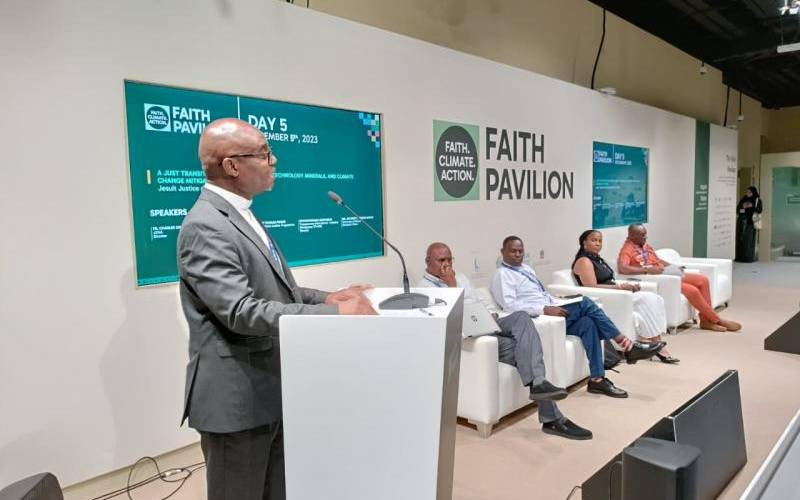×
The Standard e-Paper
Fearless, Trusted News

Fr. Charles Chilufya S.J, Director of the Jesuits Justice and Ecology Network Africa opens the session on the need for an ethically-informed approach to achieving justice in mining and facilitating a just transition at COP 28 Faith Pavilion. [Courtesy]
The African Group of Negotiators have expressed their disappointment over the progress of talks as the UN climate summit nears a close.